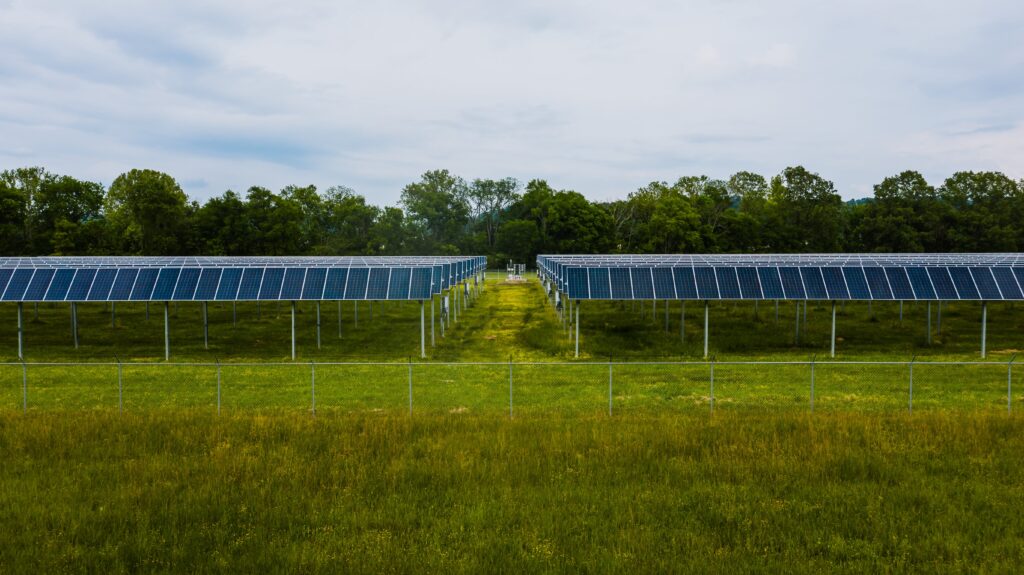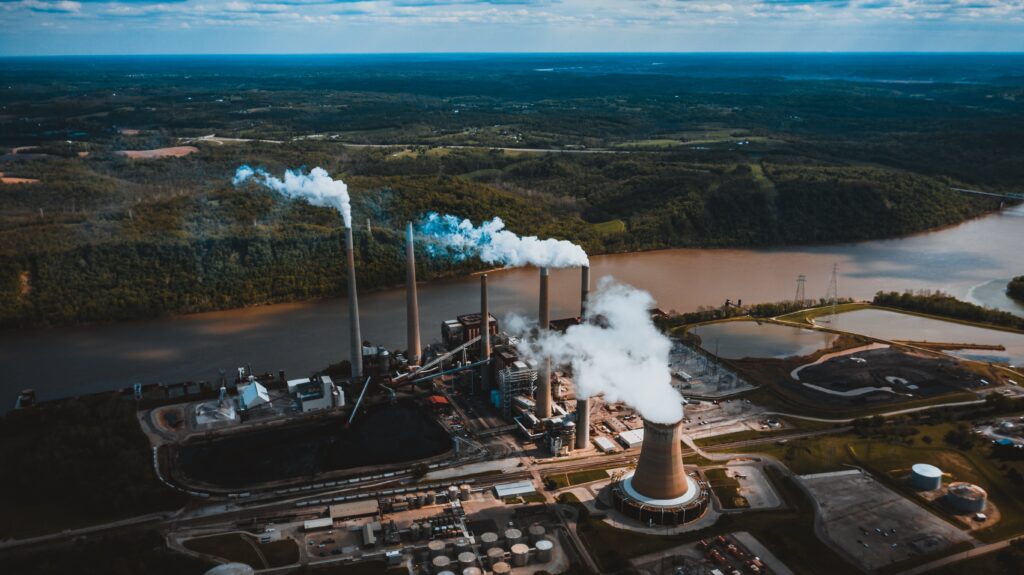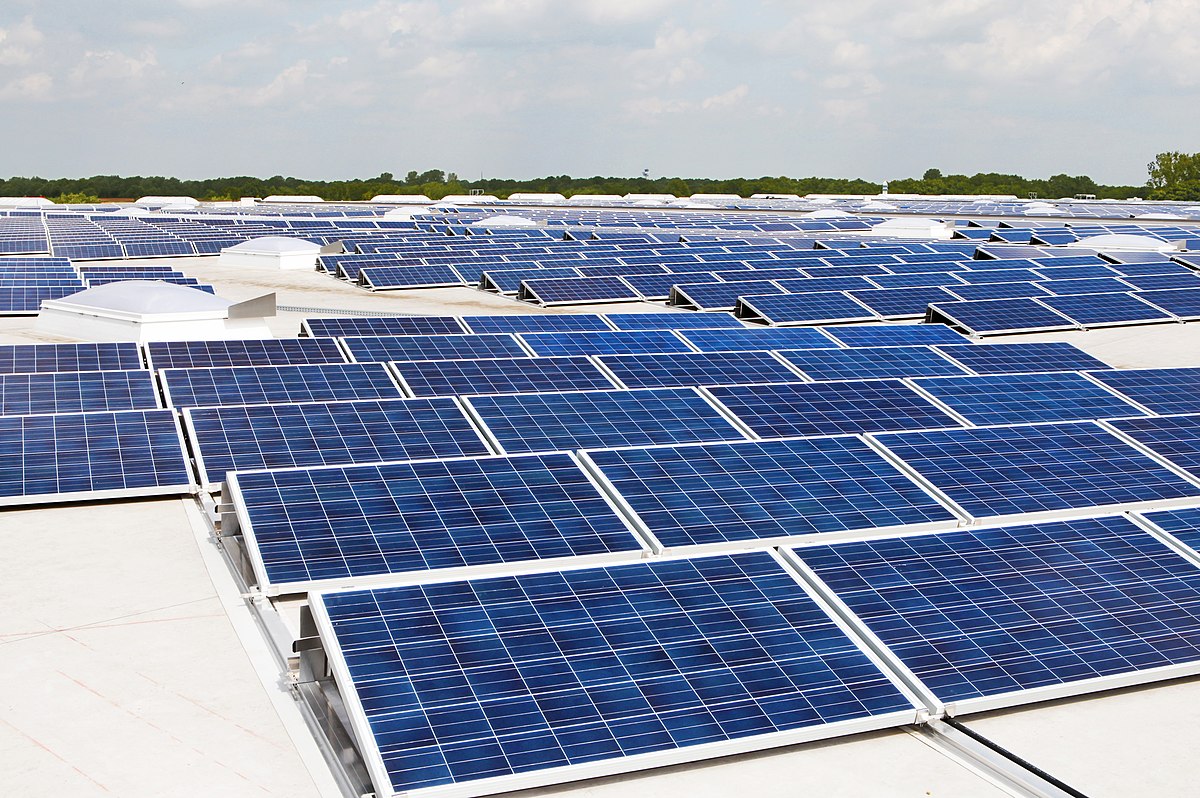Green Jobs in the Renewable Energy Sector: 10 Ways Green Energy Can Save Our Planet
In the quest for a sustainable future, one of the pivotal aspects of embracing renewable energy lies in the creation of Green jobs in the renewable sector.
This transformative shift not only addresses the urgent need for environmental preservation but also plays a crucial role in stimulating economic growth and fostering societal well-being.

The renewable energy sector has become a dynamic force, generating employment opportunities that contribute significantly to the global workforce.
“Green jobs” encompass a wide range of professions, from engineers designing innovative solar technologies to technicians installing wind turbines and researchers pioneering breakthroughs in energy storage.
As governments and industries increasingly invest in clean energy initiatives, the demand for skilled workers in these fields continues to grow.
One of the notable advantages of “Green jobs in the renewable sector” is their diverse nature, catering to individuals with varying skill sets and educational backgrounds.
From vocational training programs for technicians to advanced degrees for researchers and engineers, the renewable energy industry provides a spectrum of opportunities for individuals to contribute meaningfully to the transition to cleaner, more sustainable energy sources.
Moreover, the creation of “Green jobs” represents a shift towards economic resilience. Unlike traditional fossil fuel industries, which can be subject to market volatility and geopolitical tensions, the renewable sector offers a more stable and secure employment landscape.
This aspect not only benefits individual workers but also contributes to broader economic stability and prosperity.
As societies become increasingly conscious of the environmental impact of their energy choices, the emphasis on education and training in the renewable sector becomes paramount.

Educational institutions are adapting their curricula to meet the growing demand for skilled professionals in renewable energy fields, ensuring that the workforce is adequately equipped to drive innovation and efficiency in clean energy technologies.
Investing in education and skill development for Green jobs in the renewable sector not only addresses immediate employment needs but also fosters a culture of sustainability and environmental stewardship.
It empowers individuals to actively participate in the transition to a greener economy while ensuring that future generations inherit a planet with cleaner air, reduced carbon emissions, and enhanced overall well-being.
The integration of Green jobs in the renewable sector is not merely a byproduct of the global shift towards clean energy—it is a cornerstone of a sustainable future.
By investing in education, training, and the creation of meaningful employment opportunities in the renewable sector, we not only address the environmental challenges of today but also lay the foundation for a more resilient, equitable, and sustainable tomorrow.
In an era marked by environmental challenges and climate crises, the imperative to transition towards sustainable energy sources has never been more urgent.
Renewable energy stands as a beacon of hope, offering a path toward mitigating climate change and ensuring a sustainable future for our planet.
Here are 10 ways renewable energy could save our planet:

- Reducing Greenhouse Gas Emissions: Renewable energy sources, such as solar, wind, and hydropower, produce electricity without emitting harmful greenhouse gases. By replacing fossil fuels in power generation, we can significantly reduce carbon dioxide and other pollutants, curbing the warming of our planet.
- Mitigating Climate Change: The adoption of renewable energy is a key strategy in mitigating climate change. As we transition away from fossil fuels, we decrease our dependence on finite resources and decrease the concentration of greenhouse gases in the atmosphere, helping to stabilize global temperatures.
- Enhancing Air and Water Quality: Unlike traditional energy sources, renewables generate power without producing air pollutants or toxic byproducts. Cleaner air and water contribute to improved public health, reducing respiratory and cardiovascular diseases associated with pollution.
- Preserving Biodiversity: The extraction and use of fossil fuels often result in habitat destruction and environmental degradation. Renewable energy projects, when properly managed, have a lower impact on ecosystems, helping to preserve biodiversity and protect endangered species.
- Creating Green Jobs: The renewable energy sector has emerged as a major source of employment opportunities. From manufacturing and installation to maintenance and research, the industry provides jobs that contribute to economic growth while fostering environmental sustainability.
- Enhancing Energy Security: Renewable energy diversifies the energy mix, reducing dependence on imported fossil fuels. This enhances energy security by creating a more resilient and decentralized energy infrastructure, less susceptible to geopolitical tensions and price fluctuations.
- Encouraging Technological Innovation: The pursuit of renewable energy solutions stimulates technological innovation. Advances in solar, wind, and energy storage technologies not only make these sources more efficient but also drive down costs, making clean energy more accessible and competitive.
- Empowering Communities: Community-based renewable energy projects empower local communities to take control of their energy production. This decentralized approach fosters energy independence, resilience, and promotes equitable access to clean energy resources.
- Fostering Sustainable Development: The integration of renewable energy into development projects promotes sustainability. From powering remote villages to providing electricity for schools and healthcare facilities, renewables play a crucial role in achieving the United Nations Sustainable Development Goals.
- Long-Term Resource Sustainability: Unlike finite fossil fuel reserves, renewable energy sources are virtually inexhaustible. Solar, wind, and hydropower harness the Earth’s natural processes, ensuring a long-term and sustainable energy supply for future generations.

The shift toward renewable energy is not just a choice; it is a necessity for the survival of our planet.
Embracing clean energy technologies not only mitigates environmental degradation but also offers economic, social, and health benefits.
By investing in renewable energy, we embark on a journey towards a more sustainable and resilient future, where the well-being of both the planet and its inhabitants is safeguarded for generations to come.
Reducing Greenhouse Gas Emissions” stands as a critical pillar in the endeavor to combat climate change and usher in a more sustainable future.
The significance of this objective lies in its potential to mitigate the detrimental effects of human activities on the Earth’s climate system.
First and foremost, the burning of fossil fuels for energy has been a primary contributor to the increase in greenhouse gas emissions, particularly carbon dioxide.
By transitioning to renewable energy sources such as solar, wind, and hydropower, we can substantially curtail these emissions.
Solar energy harnesses the power of the sun to generate electricity without emitting any greenhouse gases, while wind and hydropower similarly provide clean alternatives, reducing our reliance on fossil fuels and their associated emissions.
The process of extracting and burning fossil fuels not only releases carbon dioxide but also results in the emission of other pollutants such as sulfur dioxide and nitrogen oxides.
These pollutants contribute to air pollution, acid rain, and various respiratory illnesses. “Reducing Greenhouse Gas Emissions” through the adoption of renewable energy technologies addresses not only climate change but also promotes cleaner air quality, leading to improved public health and well-being.
Moreover, the integration of energy storage technologies in conjunction with renewable sources further enhances the efficacy of emission reduction efforts.
Energy storage systems allow for the capture and storage of excess energy produced during peak times, ensuring a consistent and reliable power supply even when renewable sources, such as solar or wind, may not be actively generating electricity.
This reliability reduces the reliance on backup fossil fuel-based power generation, thereby lowering overall greenhouse gas emissions in the energy sector.
The global transportation sector, a significant contributor to greenhouse gas emissions, can also benefit from the reduction efforts.

The electrification of transportation through the use of electric vehicles (EVs) powered by renewable energy sources offers a promising avenue for emission reduction.
As the renewable energy grid expands, the carbon footprint of EVs decreases, contributing to cleaner and more sustainable mobility solutions.
Reducing Greenhouse Gas Emissions is not solely a scientific or technological challenge; it requires a concerted effort across sectors and a shift in societal behavior.
Governments, businesses, and individuals all play pivotal roles in adopting sustainable practices, promoting energy efficiency, and supporting policies that incentivize the transition to clean energy sources.
In conclusion, the multifaceted approach to Reducing Greenhouse Gas Emissions encapsulates not only a commitment to mitigating climate change but also a dedication to creating a healthier, more sustainable world.
By embracing renewable energy, promoting energy efficiency, and reimagining our modes of transportation.
We pave the way for a future where the adverse impacts of greenhouse gas emissions are mitigated, fostering a planet that thrives for generations to come.

CONCLUSION
In conclusion, the exploration of “Green Jobs in the Renewable Energy Sector” unveils a transformative narrative that extends far beyond the realms of employment.
It is a narrative that encapsulates hope, innovation, and a profound commitment to safeguarding the future of our planet.
As we navigate the complexities of the 21st century, the imperative to transition to renewable energy sources becomes not only an environmental necessity but an economic and societal imperative.
The creation of “Green Jobs” stands as a testament to the undeniable interconnection between environmental sustainability and economic prosperity.
The renewable energy sector, with its diverse array of employment opportunities, not only mitigates the impact of climate change but actively contributes to the revitalization of economies.
From engineers harnessing the power of the sun to technicians erecting wind turbines on the horizon, these jobs embody the promise of a cleaner, more resilient global workforce.
Furthermore, “Green Jobs” symbolize a departure from the unsustainable practices of the past.
As the global community grapples with the consequences of decades of fossil fuel dependence, the renewable energy sector emerges as a beacon of change.
It heralds a new era where economic progress harmonizes with ecological well-being, challenging the narrative that economic growth must come at the expense of our planet’s health.

Education becomes a linchpin in this transformative journey.
As universities, vocational schools, and training programs adapt their curricula to meet the growing demand for skilled professionals in renewable energy fields, they play a pivotal role in shaping the workforce of the future.
These educational institutions become crucibles of innovation, nurturing the minds that will propel the renewable energy sector into uncharted territories, driving advancements that will redefine our relationship with energy.
The socio-economic impact of creating more Green Jobs in the Renewable Energy Sector is profound, fostering a sense of community empowerment and resilience.
Localized projects, such as community-owned solar farms and decentralized energy systems, empower individuals to actively participate in and benefit from the green energy revolution.

This decentralization not only mitigates the vulnerabilities associated with centralized energy production but also democratizes access to the economic benefits of the renewable sector.
Moreover, the transition to renewable energy and the creation of “Green Jobs” underscore a commitment to environmental justice.
Historically marginalized communities, often disproportionately affected by the negative externalities of fossil fuel industries, stand to gain both environmentally and economically.
The equitable distribution of opportunities in the renewable sector becomes a step towards rectifying environmental injustices, creating a more inclusive and sustainable path forward.
As the world grapples with the urgency of climate action, the phrase “Green Jobs in the Renewable Energy Sector” echoes with promise and responsibility.
It represents not only a shift in how we generate power but a fundamental reimagining of our relationship with the planet.
It calls for a collective endeavor to redefine success, where economic prosperity aligns harmoniously with ecological stewardship.
In this era of unprecedented challenges and opportunities, “Green Jobs in the Renewable Energy Sector” beckon us to transcend the conventional boundaries that have constrained our progress.
It is an invitation to embrace innovation, empower communities, and weave a narrative of sustainability that transcends generations.
The creation of these jobs is not just an economic strategy; it is a declaration that we can, and must, build a future where prosperity is synonymous with planetary health.
It is a call to action, resonating across industries and borders, beckoning us to collectively forge a world where green jobs not only power our homes but also energize our shared commitment to the preservation of our precious planet.





Leave a Reply